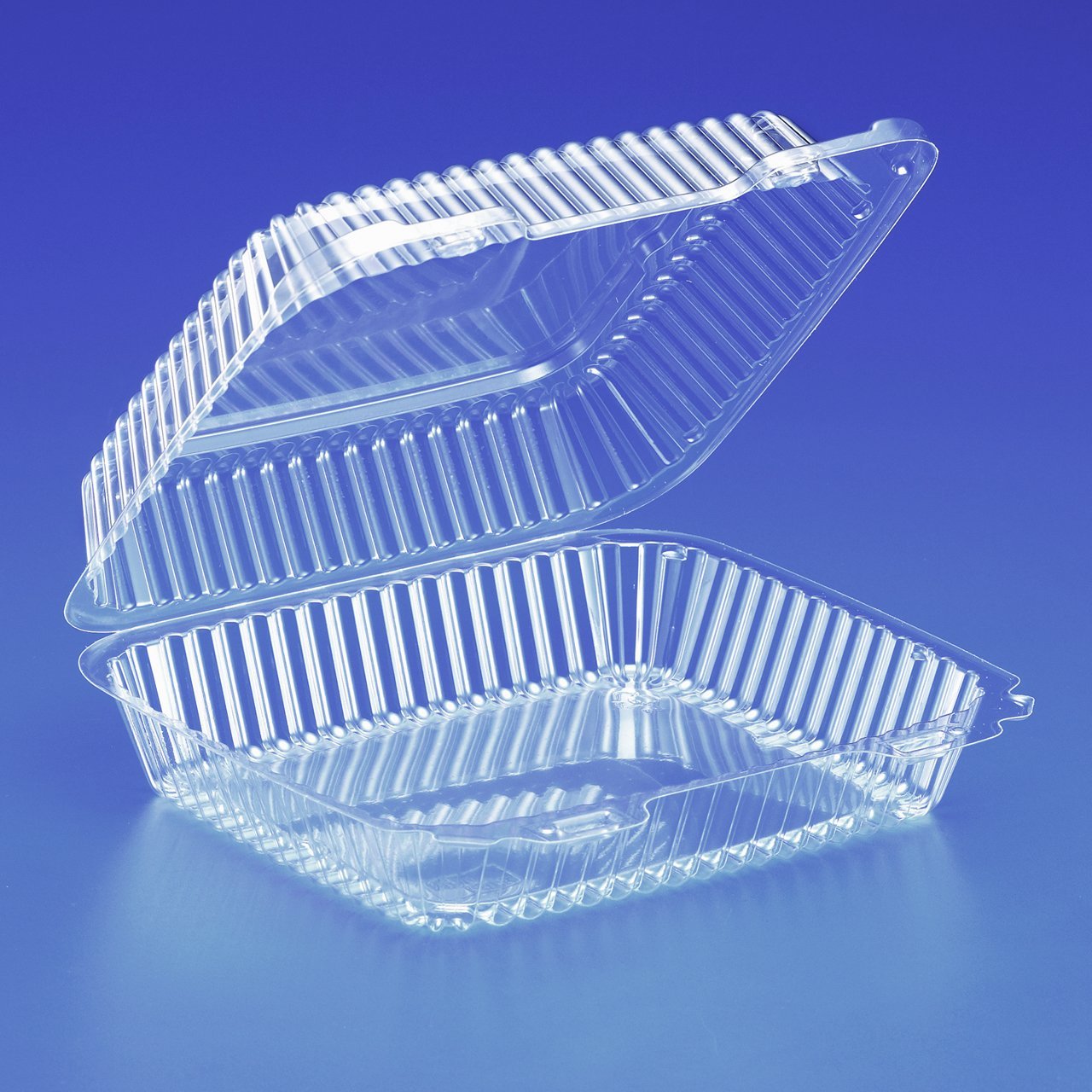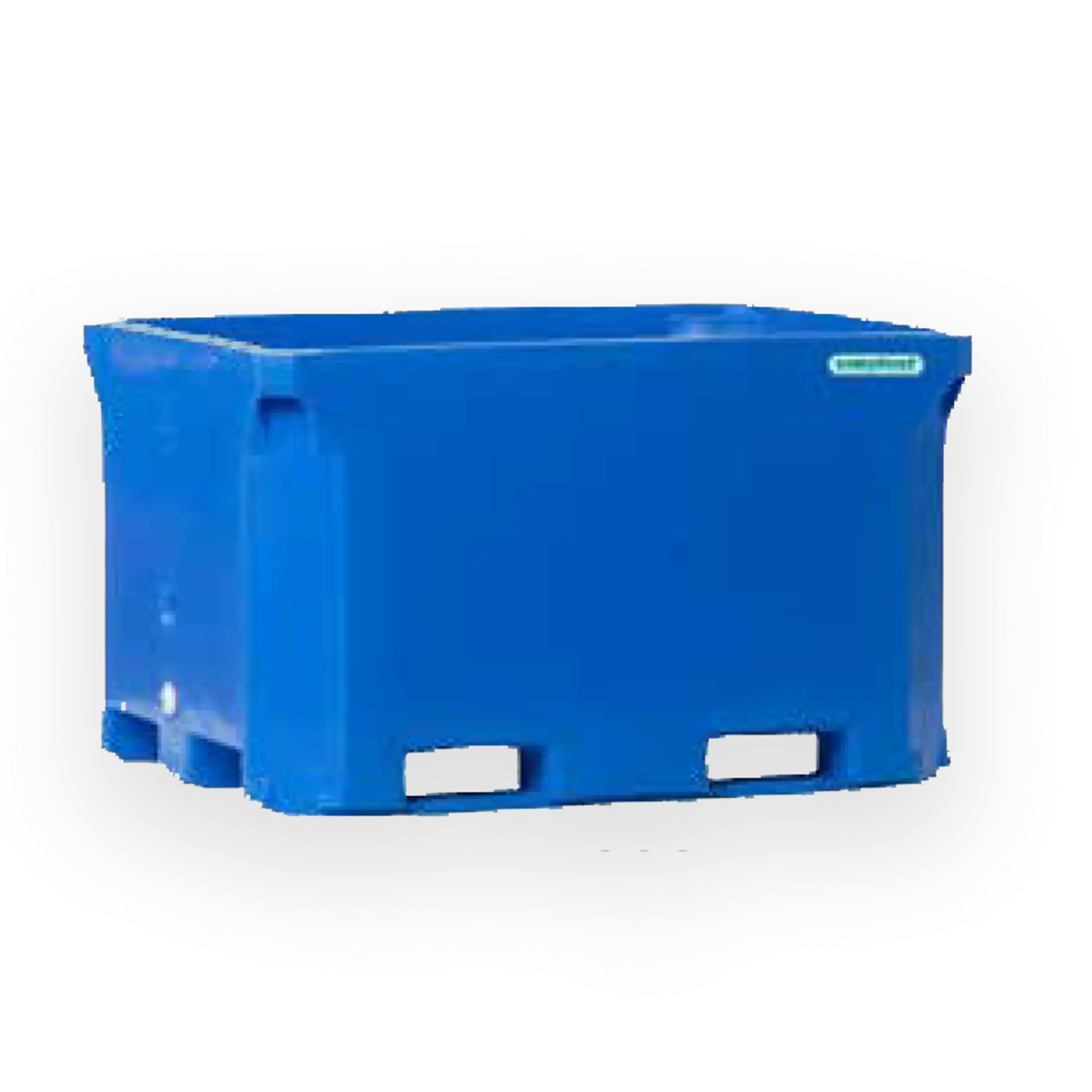The ultimate overview of Bulk Plastic Containers for versatile storage
A Comprehensive Guide to the Different Sorts Of Mass Plastic Containers Available Today
Bulk plastic containers play a critical duty in numerous markets, offering services for storage and transportation. Their varied types provide to various needs, from inflexible choices for solid products to flexible containers suiting different shapes. Each kind offers distinctive benefits, making it essential to recognize their attributes and applications. As sectors advance, so do the needs for reliable container options. What elements should one consider when picking the right bulk container?
Introduction of Mass Plastic Containers

Kinds Of Mass Plastic Containers
Bulk plastic containers can be found in numerous types, each fit to details applications. Stiff mass containers, adaptable mass containers, and intermediate bulk containers represent the key categories, each offering unique benefits. Understanding these kinds is important for selecting the ideal container for moving and keeping materials.

Rigid Mass Containers
Rigid mass containers are important for reliable storage and transport of different materials throughout industries. These containers are normally created from resilient plastics, allowing them to withstand harsh handling and ecological conditions. They come in various forms and dimensions, including containers, totes, and drums, making them ideal for saving every little thing from granular substances to liquids. Stiff containers commonly feature enhanced walls and safe lids, ensuring the materials remain shielded throughout transportation. Their stackable layout maximizes storage area, making them perfect for stockrooms and manufacturing facilities. Additionally, many inflexible mass containers are multiple-use and recyclable, contributing to sustainability initiatives. On the whole, their effectiveness and adaptability make stiff bulk containers an important component in supply chain operations.
Adaptable Mass Containers
Versatile mass containers, commonly described as flexible intermediate mass containers (FIBCs), act as a functional solution for moving and keeping a variety of completely dry materials. These containers are normally made from woven polypropylene and are developed to be light-weight yet strong, permitting effective handling and piling. Their flexibility enables them to suit various sizes and shapes, making them appropriate for items ranging from grains to chemicals. FIBCs can be furnished with features such as spouts for simple dental filling and discharge, as well as safety coatings for improved longevity. Additionally, they are recyclable and multiple-use, adding to sustainable techniques in industries like agriculture, food handling, and building and construction. Overall, versatile mass containers offer a efficient and affordable choice for mass product monitoring.
Intermediate Mass Containers
Intermediate bulk containers (IBCs) are necessary for the efficient transport and storage of liquids and granular materials across various markets. These containers typically have a capability varying from 275 to 330 gallons and are made for easy stacking and taking care of. Made from resilient materials like high-density polyethylene or steel, IBCs supply exceptional defense versus contamination and ecological variables. Their layout consists of features such as a built-in pallet for forklift accessibility and a detachable top for very easy dental filling and cleansing. IBCs are commonly utilized in chemical, food, and pharmaceutical markets, making sure compliance with security guidelines. Their adaptability and reusability make them an economical service for bulk storage and transportation, adding to provide chain performance and sustainability.
Features and Benefits of Bulk Plastic Containers
Bulk plastic containers are important tools in various industries, offering a mix of toughness and practicality. These containers are constructed from premium materials, making them immune to influences, chemicals, and environmental aspects. This robustness guarantees product safety and security during storage space and transport.
Additionally, bulk plastic containers are light-weight, helping with convenience of handling and decreasing delivery expenses. Their stackable layout makes the most of storage efficiency, permitting enhanced warehouse room. Numerous models feature secure lids or closures, giving an impermeable seal that protects against and protects components contamination.
Mass plastic containers are recyclable and commonly reusable, contributing to sustainable practices. Their flexibility enables a wide variety of applications, from food storage to industrial usage, boosting their value throughout fields. Organizations gain from the lengthy life-span and low upkeep demands of these containers, making them an affordable option for both short-term and long-lasting requirements.
Industries That Use Bulk Plastic Containers
Different industries profit from using mass plastic containers, each leveraging their unique homes for details applications. The food and beverage sector relies on these containers for secure storage and transportation of products, while the chemical manufacturing market uses them for taking care of dangerous products. Additionally, the pharmaceutical distribution requires emphasize the importance of toughness and tidiness in product packaging services.
Food and Drink Industry
As the demand for safe and efficient storage remedies continues to climb, the food and drink sector progressively relies upon bulk plastic containers for their operational requirements. These containers supply durable, lightweight, and functional options for saving active ingredients, completed products, and waste products. Made from food-grade materials, they ensure compliance with health and wellness and security standards. Numerous styles, such as stackable bins and lug boxes, maximize space during transportation and storage, boosting logistical effectiveness. Furthermore, the openness of some bulk containers permits easy stock administration, decreasing the danger of wasting. With the industry's focus on sustainability, numerous producers are now offering multiple-use and recyclable alternatives, straightening with green practices while satisfying the high demands of food safety and health.
Chemical Production Sector
The chemical production market counts greatly on mass plastic containers for the secure and efficient storage space of basic materials, intermediates, and completed items. These containers are designed to endure various chemicals, ensuring that unsafe products do not leak or weaken the container itself. Typical kinds consist of high-density polyethylene (HDPE) plastic bulk containers and polypropylene containers, which offer excellent chemical resistance and durability. Their lightweight nature and stackable layout help with transport and storage space, maximizing room in manufacturing facilities. Furthermore, numerous mass plastic containers feature attributes such as tamper-evident seals and easy-to-read labeling, enhancing safety and compliance with industry policies. Overall, mass plastic containers are essential to the chemical manufacturing procedure, offering dependable solutions for handling varied materials.
Drug Circulation Needs
Drug circulation relies on mass plastic containers to satisfy rigid safety and security and regulative requirements. These containers are essential for transporting and keeping a variety of pharmaceutical products, consisting of active pharmaceutical components (APIs) and completed medicines. Their layout guarantees defense versus moisture, light, and contamination, preserving the integrity of delicate materials. Additionally, bulk plastic containers are certified with sector criteria such as Great Production Practices (GMP) and are typically made from materials that are FDA-approved. Making use of these containers boosts efficiency in the supply chain, allowing for safe, large circulation while decreasing waste. Companies in the pharmaceutical field focus on the usage of long lasting, watertight, and tamper-evident containers to guarantee product safety and quality throughout the logistics procedure.
Considerations for Choosing the Right Container
When picking the ideal mass plastic container, numerous factors need to be carefully evaluated to guarantee perfect performance and security. The nature of the materials to be saved is extremely important; compatibility with the container's material can affect honesty and security. Bulk Plastic Containers. In addition, the container's size and form should straighten with the storage and transportation needs, assuring reliable area utilization
Tons ability is another crucial consideration, as it ought to suit the weight of contents without threat of damages or failure. The style attributes, such as venting or lids, can influence usability and gain access to. Conformity with industry guidelines is essential, especially in markets like drugs, where safety requirements are rigid.
The expected life expectancy and durability of the container ought to be examined to verify it satisfies the functional needs without frequent replacement. By assessing these aspects, one can pick one of the most ideal mass plastic container for details applications.
Ecological Influence and Sustainability
As businesses increasingly prioritize sustainability, the environmental impact of mass plastic containers has come under scrutiny. These containers, often made from products such as polyethylene or polypropylene, add considerably to plastic waste otherwise handled correctly. Their production includes the usage of nonrenewable fuel sources, which can result in enhanced greenhouse gas discharges. Nevertheless, developments in recycling technology and the growth of eco-friendly options are assisting to alleviate these worries.
Additionally, numerous producers are adopting techniques that highlight using recycled products, consequently decreasing the demand for virgin plastics. The toughness of bulk plastic containers additionally contributes; they are designed to be recycled multiple times, which can decrease their general environmental footprint when contrasted to single-use options. Inevitably, the industry encounters the challenge of stabilizing functionality with eco-friendly duty, making sustainable methods essential for the future of bulk plastic containers.
Ideal Practices for Storage and Transport
Effective storage and transportation of mass plastic containers significantly influence both functional effectiveness and sustainability. To take full advantage of room, organizations must stack containers firmly, guaranteeing security and get more stopping damages. Proper labeling is vital for very easy identification, which improves access processes. In addition, maintaining a well organized and clean storage area decreases the danger of contamination and improves security.
For transportation, choosing the ideal vehicle is crucial; containers should be safeguarded to avoid shifting throughout transportation. Firms should also take into consideration making use of pallets to promote less complicated loading and unloading. Regular assessments of containers for deterioration can prevent pricey replacements.
Temperature level control is another essential element, as extreme conditions can compromise the integrity of the plastic. Finally, training personnel on best practices for handling and transportation guarantees conformity and advertises a society of security. By carrying out these finest practices, businesses can boost their functional effectiveness while adding to ecological sustainability.
Frequently Asked Questions
Just how Do I Clean Mass Plastic Containers Efficiently?
To tidy bulk plastic containers effectively, one need to rinse them with warm water, utilize a mild cleaning agent and scrub with a soft brush. Rinse thoroughly, then allow to air dry completely prior to storage or reuse.
What Is the Life-span of Bulk Plastic Containers?
The life-span of mass plastic containers commonly varies from go to my blog 5 to ten years, depending on the material, use, and environmental problems. Appropriate upkeep and storage can considerably extend their use and durability over time.
Can Mass Plastic Containers Be Customized?

Do Bulk Plastic Containers Have Warranty Options?

Exist Rules for Utilizing Bulk Plastic Containers?
Yes, policies exist for using mass plastic containers, mainly focused on security, environmental impact, and product conformity. These policies guarantee that containers meet sector requirements and appropriate for transporting numerous substances safely and effectively.
Rigid bulk containers, adaptable mass containers, and intermediate mass containers represent the main classifications, each offering distinct advantages. Flexible mass containers, usually referred to as adaptable intermediate mass containers (FIBCs), serve as a versatile remedy for keeping a variety and transferring of completely dry products. The chemical manufacturing sector counts greatly on bulk plastic containers for the safe and reliable storage space of raw products, intermediates, and finished items. plastic bulk containers. These containers are developed to withstand numerous chemicals, guaranteeing that hazardous products do not leakage or degrade the container itself. Furthermore, bulk plastic containers are certified with market standards such as Excellent Manufacturing Practices (GMP) and are usually made from products that are FDA-approved